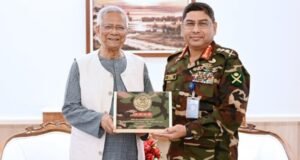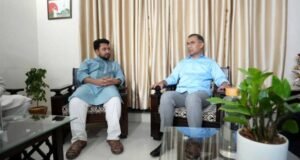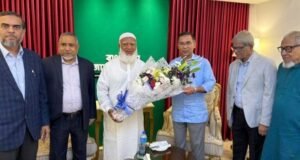
The National Consensus Commission continued its dialogue with political parties on Thursday for the ninth consecutive day of its second phase, aiming to reach agreement on key issues of state reform and to prepare the much-anticipated July Charter.
The meeting, held at the Foreign Service Academy in Dhaka, began at 11 am and was chaired by Vice-Chairman of the Commission, Professor Dr Ali Riaz. Several other commission members and the Special Assistant to the Chief Adviser, Monir Haider, were present during the session. Representatives from 30 political parties, including BNP, Jamaat-e-Islami, NCP, Gono Odhikar Parishad, Gana Sanghati, CPB, Biplobi Workers Party, and the AB Party, took part in the discussion.
Thursday’s talks centred on three complex areas of state governance: the decentralisation of the judiciary, the authority and scope of presidential clemency, and the process for declaring a state of emergency. According to commission sources, these topics were revisited alongside unresolved matters from previous sessions as part of an effort to build broader consensus.
In his opening remarks, Professor Ali Riaz called on participants to remain mindful of the context and sacrifices that had paved the way for the commission’s work. He stressed that the current opportunity for reform had emerged after decades of injustice and repression, and warned that it should not be squandered through carelessness or complacency.
Riaz had expressed optimism at Wednesday’s session, saying that the dialogue was moving in a positive direction. If the current pace continues, he said, the July Charter could be announced by mid to late July. The charter is expected to encapsulate the agreed reforms and provide a roadmap for future state structure and governance in Bangladesh.
 Weekly Bangla Mirror | Bangla Mirror, Bangladeshi news in UK, bangla mirror news
Weekly Bangla Mirror | Bangla Mirror, Bangladeshi news in UK, bangla mirror news







